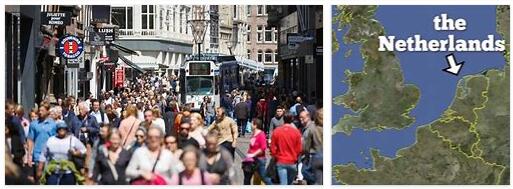| Basic data | |
| Capital | Vaduz |
| Population | 39.31 thousand |
| Language | German |
| Religion | Christianity |
| State system | constitutional hereditary monarchy |
| Head of State | Prince Hans-Adam II |
| Head of government | Daniel Risch |
| Currency name | Swiss Franc (CHF) |
| Travel | |
| Time shift | 0 hours |
| Economy | |
| Nominal GDP (billion USD) | ON |
| Economic growth (%) | – 10.1 (the most recent figure for 2020) |
| Inflation (%) | 0.6 (figure from December 2021) |
| Unemployment (%) | (figure for 2021) |
With an area of 160 km² and a population of 39,315, the Principality of Liechtenstein, or Liechtenstein, is one of the smallest states in Europe and the sixth smallest state in the world. The land on the Rhine River stretches on the slopes of the Rätikon Alpine Mountains between the Swiss canton of St. Gallen and the Austrian state of Vorarlberg. Since 1924, Liechtenstein has formed a customs and monetary union with Switzerland – its legal currency is the Swiss franc, just like in Switzerland. Since 1995, Liechtenstein has had access to the EU/EEA internal market and is also a member of the EFTA. The official language is German, Lichtensteinians use two Alemannic dialects in their colloquial language. Liechtenstein is a constitutional hereditary monarchy built on a parliamentary basis formed by 11 municipalities. It is headed by a prince. Not only he, but also the parliament and other government institutions are located in the capital city of Vaduz. The largest city in terms of population is Schaan.
According to topb2bwebsites, Liechtenstein is among the richest countries in Europe with a well-developed infrastructure. It is regularly placed in the top ranks of countries with the greatest purchasing power of the population and prosperity. From a simple “peasant state” it has developed into an innovative state in the last 60 years. It has a broadly diversified economy with a number of small and medium enterprises. A highly skilled workforce, a strong industrial sector and financial service providers mainly contribute to high added value. Moreover, it is a country with a long-term stable political situation and a high political culture, which is an important aspect for any business.
Together with Switzerland, Liechtenstein has also become a world leader in cryptocurrencies and blockchain technologies. The well-known cryptocurrency exchange Bittrex moved to the country in 2019, and the blockchain law came into force on January 1, 2020. This made Liechtenstein the first country in the world to officially use cryptocurrencies. The area of blockchain and cryptocurrencies has great potential, among other things, for cooperation with Czech entities.
Digitization is an equally important area of Liechtenstein interest, especially in the context of its use in the national economy, but also in ensuring the security and stability of the digital infrastructure and its protection against cyber attacks.
To do business with Liechtenstein, you need to prepare for a matter-of-fact and measured partner who is not afraid to go into conflict. Therefore, it is recommended to be well prepared for such negotiations, including, for example, the ability to improvise and be creative.
Liechtenstein is not one of the important trading partners of the Czech Republic, it has long been around 100th position among trading partners of the Czech Republic with a share of roughly 0.01% of the total turnover of foreign trade of the Czech Republic.
In its publication “Volkswirtschaftliche Gesamtrechnung” from March 2022, the Statistical Office of Liechtenstein expects a sharp drop in nominal GDP for 2020, by -10.1%. Liechtenstein’s economy already recorded a slight decline in GDP (-2.4%) in pre-pandemic 2019.




